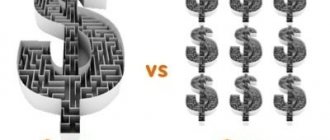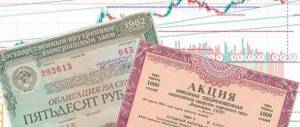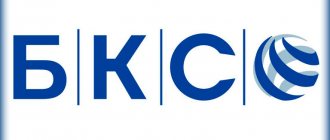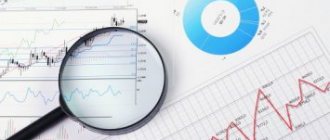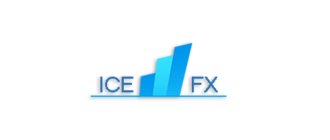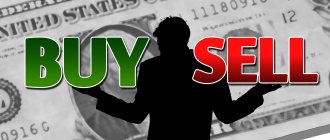Plan:
— Traders — Brokers — Difference between broker and trader — What is the difference between brokers, dealers and traders? — In conclusion about brokers and traders
People who are new to Forex are often confused by the concepts of broker and trader.
To understand the difference between a broker and a trader, first let’s look at what they do and how they make money, and then we summarize all the information about traders and brokers together.
Trader - in the narrow sense of the word, is a trader who trades on the stock exchange. Moreover, he can trade as a businessman, with his own money or with money that investors entrusted to him. Or he can work as a hired trader for a salary, for example, in a bank. In this case, his employer trusts him with his money and all profits go to the employer, and the trader is paid a salary.
Find out who the traders are!
There are situations when a trader can work as an employee and at the same time receive a percentage of the profit and at the same time spin his own money.
In Russia, the majority of traders work with their own money, that is, as businessmen. In this case, the trader, like any entrepreneur, works for himself and risks his personal money. He does not rely on luck, but on his knowledge, his own professionalism and personal discipline.
In the broad sense of the word, a Trader is a person who makes money on the natural difference in the price of a product, which is formed without his personal participation. In other words, he makes money from such an increase in price, which occurs without creating additional value for the product. Stock traders are the most common type of traders among all other traders.
So, roughly speaking, traders are those who sell and buy different currencies, stocks, futures, options, metals, raw materials and other exchange commodities on exchanges. The trader's task is to buy a product at a low price and sell it at a higher price. And since price movements up and down do not depend on the personal participation of the trader, the trader’s work does not seem entirely simple and not every person is professionally suited to be a trader.
You may be interested in advice from an experienced trader.
Who is a trader? Definition
So, let's first understand who a trader is and what his job is. In the stock market, a trader's job mainly consists of buying and selling financial assets (stocks, bonds, indices, currencies, etc.). His ultimate goal, of course, is to make a profit.
A trader monitors stock market price movements in real time and may specialize in one or more financial markets.
It can trade Forex currency pairs, commodities or even cryptocurrencies. There is also a specialization in trading styles: then we can talk about swing trading, day trading or scalping. These styles differ mainly in the choice of timeframes, namely:
◉ Medium- and long-term swing trading, when positions can be open from several hours to several days.
◉ Short-term trading, when positions are opened for a period of several minutes to several hours and closed before the end of the trading day.
◉ Very narrow time frames for scalping, here transactions last several minutes or even several seconds.
A trader may be an employee of a financial institution, such as a bank, or work independently. The first, of course, meets very strict hiring criteria and will certainly have the appropriate education and deep knowledge in the fields of analytics and finance, while the second can have any education, knowledge and level of income.
The proliferation of the Internet has indeed made it easier for the general public to access the stock markets through online brokers. More and more private traders are being trained to trade the financial markets in order to become an online trader themselves or even copy the trades of successful traders of traders, some brokers offer this opportunity.
ZERO TO HERO COURSE
Retail traders are mainly individuals. Most often they invest their own savings. On the other hand, hired traders usually act on behalf of third parties: they invest money from clients of the company for which they work.
Essentially, the profession of a trader includes the following daily tasks:
✅ Market monitoring
✅ Communication with the client
✅ Investment portfolio management
Commodity trading is also worth considering separately. Despite the fact that the commodity market is less popular, let's talk about it in more detail.
Among the largest companies that specialize in commodity trading are the following: Vitol, Glencore International, Cargill, Trafigura or even Koch Industries. They are little known to the general public, but their turnover is hundreds of billions of dollars.
What does a commodity trader do? To begin with, it should be noted that there are 4 main directions in this area:
✅ Energy carriers (crude oil, fuel oil, natural gas, gasoline)
✅ Metals (especially gold, silver, platinum, copper)
✅ Livestock commodities
✅ Agricultural products (corn, soybeans, wheat, rice, cocoa, coffee, cotton, sugar).
The profession of a commodity trader is based on various arbitrage strategies: spatial, equivalent, time. As the name of the profession suggests, the main trading activity of a commodity trader is related to raw materials, and it does not matter to what extent and at what stages his company is involved in the chain of production, transformation, transportation and storage.
What is the difference between trading on Forex and trading on crypto exchanges?
The main differences between trading virtual moments on Forex and trading on cryptocurrency exchanges:
- Trading cryptocurrency on Forex does not require the trader to have an account in one or another digital money system, despite the fact that the player can trade absolutely all the moments available on the site. This eliminates the need to register, download a client, and read technical documentation on how to properly use a cryptographic network, blockchain, and the like. All a trader needs is to analyze charts and make correct predictions.
- The cryptocurrency rate on Forex may differ slightly from the rate on specialized crypto platforms. The difference in the value of an asset on different exchanges is usually called arbitrage, and sometimes you can earn good money on it, if you’re lucky.
- Forex is a single trading platform on which you can trade both virtual money and fiat currency. Crypto platforms, as a rule, provide only virtual coins or currency pairs with them for trading.
- Forex brokers that trade cryptocurrency typically allow you to use more leverage, which allows you to make bigger profits (or make bigger losses).
- Forex trading is considered safer than trading on crypto exchanges. This is due to the fact that Forex brokers undergo a licensing procedure and their activities are well regulated by law.
- Forex cannot be traded with absolute anonymity, with rare exceptions. On crypto platforms, in turn, you can very often trade by indicating only your account address.
- When buying and selling cryptocurrencies on Forex, a trader, as a rule, incurs large commission costs, since the transaction takes place outside the digital payment system.
- Some forex platforms close on weekends or at certain times of the day, while crypto exchanges operate 24 hours a day, seven days a week.
Let us note once again that sometimes the cryptocurrency rate of forex brokers differs greatly from that on specialized crypto platforms, and if you lose money because of this, no one will return it to you - complaints and proceedings with the broker will be useless.
Who is a broker? Definition
Now let's find out who a broker is and what his job is. Broker or brokerage company is a common name that can be found in many fields of activity, such as insurance or real estate.
In finance, a broker refers to an intermediary between a trader and financial markets, so the concepts of broker and trader are often confused.
Brokerage activities are strictly regulated and monitored by regulatory organizations in each country. Let's look at a few examples:
- AMF (French Financial Market Supervisory Commission)
- FCA (Financial Conduct Authority) for UK
- BaFin (German Federal Financial Supervisory Authority)
- CySec (Cyprus Securities and Exchange Commission)
- SEC (US Securities and Exchange Commission)
- ASIC (Australian Securities and Investments Commission)
- CSRC (China Securities Regulatory Commission)
To obtain permission to practice in one of the European countries, a stockbroker must be regulated by one of the European regulatory organizations.
For example, Admiral Markets is regulated by various organizations such as the Financial Conduct Authority (FCA) in the UK, the Cyprus Securities and Exchange Commission (CySec) in Cyprus, the Financial Conduct Authority (EFSA) in Estonia and the Australian Securities Exchange Commission. Securities and Investments (ASIC) in Australia respectively.
And before making any decisions related to trading, you need to choose the best and necessarily regulated broker for yourself. Always check which organizations control its activities, what licenses your broker has and what reputation it has in the market.
Trader and broker: similarities and differences
From the definitions above, we already know that a broker and a trader have very different tasks and roles, and let’s now summarize. A trader is a person who has certain assets that he wants to invest in some instruments on the market in order to ultimately make a profit.
To do this, the trader goes to the broker. A broker is an intermediary between the trader and the market; he does not make decisions for the trader, but simply carries out the instructions received. In short, the trader places buy or sell orders and the broker executes them.
A trader and a broker are two different players in financial markets. In total, there are four groups of stakeholders in markets:
✅ Issuers
✅ Investors
✅ Intermediaries
✅ Regulators
Issuers are persons or organizations that issue securities. They are key figures in the investment market, its further development depends on them.
Issuers can be companies; they issue shares to develop and finance their activities. States can also act as issuers; they issue bonds to refinance and reduce their debt.
Next comes the investors. Essentially, an investor is someone who buys securities. The investor can be an individual or a company, such as investment funds. It is to this category of stock market participants that traders belong, and any type of trader.
Next on this list are intermediaries, also known as brokers - various organizations necessary to process transactions. Here are examples of such companies:
✅ Large stock exchanges, such as Euronext, which has branches in Paris, Brussels, Amsterdam and Lisbon
✅ PSIs (investment service providers) such as banks and stock exchange brokers who transmit and process orders in the markets
✅ Clearing institutions, which are responsible for transferring securities to investors and calculating amounts due to issuers.
The broker, as a provider of investment services, belongs precisely to this category of stock market participants.
Regulators include all global organizations that regulate the activities of markets.
In addition to all of the above, a trader and a broker are often confused due to ignorance of the structure of the stock exchange. Yes, the trader places orders, but does not transmit them directly; his broker does this. And it is this intermediate stage that is often ignored in literature, cinema and even in the press.
In contrast to this, we can recall an exemplary example - the famous “The Wolf of Wall Street,” the novel by Jordan Belfort, based on which Martin Scorsese made a film of the same name in 2007. The main character Belfort, played by Leonardo DiCaprio, began his career in the stock market as an assistant trader.
However, he gained fame primarily as a broker, creating the Stratton Oakmont brokerage firm. And in the film they rightly show us exactly the history of the formation of a broker, without getting confused in concepts.
Also misleading is the fact that a trader may be trading on behalf of a third party, that is, investing capital in the markets that belongs to another person or company. Accordingly, he can place orders on their behalf. But again, the trader is not replacing the broker, since it is the broker who then processes and transmits these orders to the markets.
In addition to these differences, it must be emphasized that anyone can become a trader, however, a broker, as we already know, must be subject to strict rules and regulatory structures.
How to become a trader or broker?
Despite all the differences, the positions of a trader and a stockbroker are similar in some ways and can attract similar people. So how do we know which profession to focus on?
As we already know, in order to become an online trader, you do not need diplomas or compulsory specialized education. Naturally, we must remember that serious training in the stock market is still advisable in order to limit the risk of financial losses.
You also need to understand that all traders working in banks or financial institutions have serious degrees from the best colleges and universities in the world.
When it comes to brokerage firms, there is no formal requirement for a degree, but in reality, it is necessary to at least take a course in finance or an internship in this field, which will give you a serious advantage in the market.
Based on what has already been said above, if long studies do not appeal to you, then the path of a hired trader is not for you. But if you want to work independently, then becoming an online trader is the best option.
START TRADE
Differences between a brokerage account and a bank account
The key difference is that the bank (deposit) is protected, but provided that the deposit does not exceed 1.4 million rubles. The main difference is that a bank account is opened for cash settlement operations, while a brokerage account is opened only for trading on stock exchanges. Banking, as a rule, is opened in person at a branch of a financial institution. Such an account is more precisely organized: you know in advance the percentage of profit and for what period it is accrued, while in a brokerage everything depends on the mood of the market.
How to choose a stock broker?
If brokers are not required to take courses or have educational diplomas, then how can you choose your broker?
In fact, the most important thing for a broker is its reliability. As we saw earlier, it must be regulated by competent financial supervisory organizations and meet certain requirements.
One of the mandatory conditions is that the broker must have special bank accounts exclusively for its clients. Traders' funds are placed there, and this is a guarantee that clients will be able to return their investments, for example, in the event of bankruptcy of a brokerage company.
Therefore, it is necessary to know the name of the bank where these accounts are held to ensure that it is not a subsidiary of the broker.
In addition, brokers, like banks, are required to report their fund balances. This is an interesting point, since even a negative balance can be justified by the corresponding investment. In this case, the broker cannot refuse to provide data; if he does do this, be careful, he may have something to hide.
On the other hand, in addition to these legal requirements, a number of criteria must also be taken into account, in particular:
☝️ Suggested trading platforms
☝️ Ability to select and change leverage
☝️ Trading styles (the possibility of scalping, for example, is not available everywhere)
☝️ Available markets
☝️ Exchange training
☝️ Providing a demo account
☝️ Its competitiveness
☝️ Availability of customer support in your native language
☝️ Opinions of other traders.
Scalper
Some professionals provide trading services as so-called scalpels. Such traders:
- They also conduct transactions within one trading day.
- Unlike their “daily” colleagues, they are guided by data from one-minute or five-minute timeframes.
- They make a large number of transactions within a few minutes or, less often, hours.
- Moreover, the strategy itself pays off not in high percentages on each transaction, but in the number of transactions completed.
- Scalping, or “cutting off the tops,” is done in cases where there are low exchange and broker commissions, sufficient capital turnover to cover the margin, or high liquidity of the instrument.
About us: Admiral Markets
As a regulated broker, we provide access to the most popular trading platforms in the world. You can trade CFDs, shares and ETFs with us.
This material does not contain, and should not be interpreted as containing, investment advice, investment advice, or an offer or solicitation of any transactions in financial instruments. Please note that such trading analysis is not a reliable indicator for any current or future trading as circumstances may change over time. Before making any investment decisions, you should seek advice from independent financial advisors to ensure you understand the risks.

